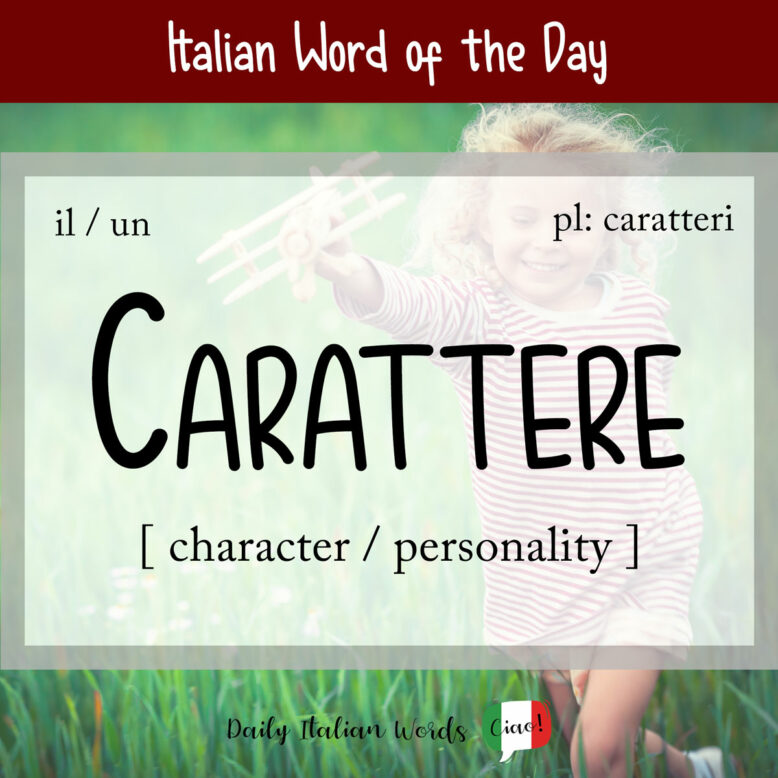In order to describe someone’s character, personality or disposition in Italian, you need to know the word carattere.

Carattere has its etymology from the Latin word character and ultimately derives from the Greek term kharaktḗr, which means “a stamping tool”. It is a masculine noun that takes the following definite and indefinite articles:
- il carattere = the character
- i caratteri = the characters
- un carattere = a character
- dei caratteri = (some) characters
Bruno ha un carattere molto difficile.
Bruno has a very difficult personality/character.
Here are some different personality types with which you might be familiar:
- carattere forte / debole = strong / weak character
- carattere introverso / estroverso = introverted / extroverted character
- carattere aperto / chiuso = open / closed personality

You may often hear the diminutive form caratterino, which refers to a person with a strong (and often difficult) personality or fiery temper.
Certo che tuo figlio ha proprio un bel caratterino!
Your son certainly has quite the temper!
Like the English character, carattere can also refer to any printed or written letter or symbol, including typefaces and alphanumeric symbols. The original meaning of the word, derived from Greek, encompassed this notion of a mark or symbol. Over time, it expanded to denote a token, feature, or trait, and eventually came to encompass a person’s distinguishing qualities.
La password deve essere lunga almeno nove caratteri.
The password needs to be at least 9 characters long.
Important: Character, as in a person in a novel, play or film, does not translate as carattere in Italian but rather personaggio.
By extension, both carattere in Italian and character in English can also convey the meaning of mettle or backbone. If you describe someone as un uomo di carattere in Italian, it means that he is a man of character, emphasizing his strong and resilient nature.
Two additional translation are nature (e.g. a scientific nature = un carattere scientifico) and in biology, feature (e.g. a hereditary feature = un carattere ereditario).
Heather Broster is a graduate with honours in linguistics from the University of Western Ontario. She is an aspiring polyglot, proficient in English and Italian, as well as Japanese, Welsh, and French to varying degrees of fluency. Originally from Toronto, Heather has resided in various countries, notably Italy for a period of six years. Her primary focus lies in the fields of language acquisition, education, and bilingual instruction.


